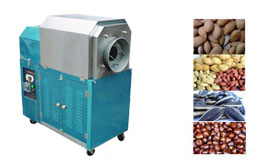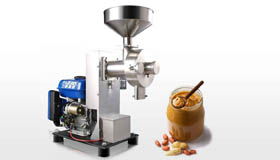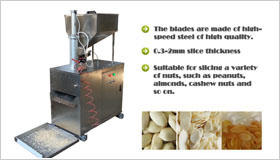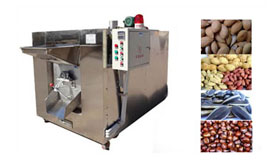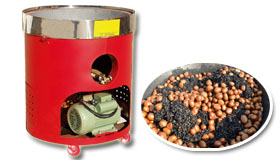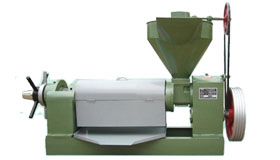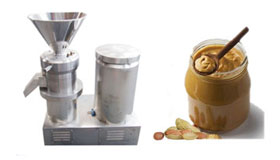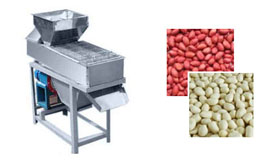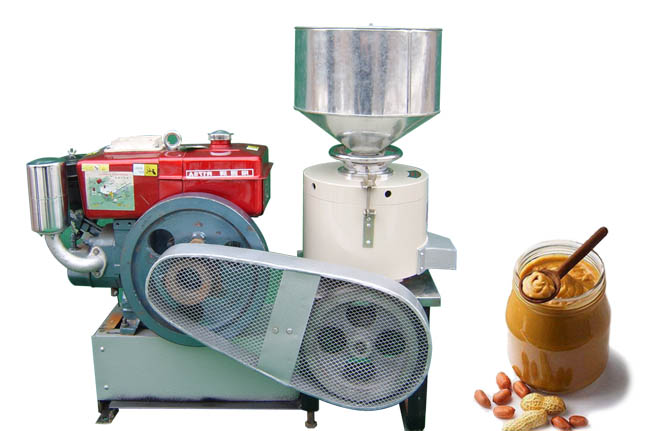
The diesel peanut butter machine is driven by the diesel engine. It could apply to the places with electricity limited. The products processed by the grinding teeth with slow uniform running speed fully retains the natural color and pure flavor of raw materials. It not only retains various trace elements of peanuts, but also avoids the destruction of nutrients caused by high temperature and high pressure in modern large-scale machinery production.
Peanut Grinder | Diesel Energy
Model: KMGR-S15
Capacity: 45 Kg/Hour
Engine Horsepower: 6 HP
Wheel Size: Dia. 200 MM
Size: 1000x400x900 MM
Weight: 145 KG
The diesel peanut butter machine works by the relative motion of the rotor in different geometric shapes under high-speed rotation to grind the raw material by shearing and high-frequency vibration. There are three grinding areas in the crushing chamber: coarse grinding area, fine grinding area and ultra-fine grinding area. By adjusting the clearance of the fixed rotor, the required ultra-fine crushing effect can be achieved once (recycled processing can also be realized). The peanut butter machine has the characteristics of compact structure, less noise, corrosion resistance, easy cleaning, easy maintenance, etc.
The diesel peanut butter machine is suitable for fine grinding in pharmaceutical, food, chemical and other industries. It can break, emulsify, homogenize and mix all kinds of semi-fluid and emulsion materials:
1. Food industry
Aloe, pollen, pineapple, food stuffing, cream, jam, tahini, peanut butter, chili sauce, fruit juice, soy, soy sauce, bean paste, peanut milk, protein milk, soy milk, dairy products, malted milk, essence, all kinds of drinks, emulsified chicken bone mud, emulsified pig skin and other animal skin, animal viscera, etc.
2. Chemical industry
Paint, pigment, coating, lubricating oil, diesel oil, petroleum catalyst, emulsified asphalt, adhesives, plastics, glass fiber reinforced plastics, leather, toothpaste, detergent, shoe polish, cosmetics, soap balm, etc.
3. Pharmaceutical industry
Various syrups, nutrient solutions, biological products, pollen, vaccines, various ointments, various oral medicines, emulsions, animal husbandry drugs, etc.





